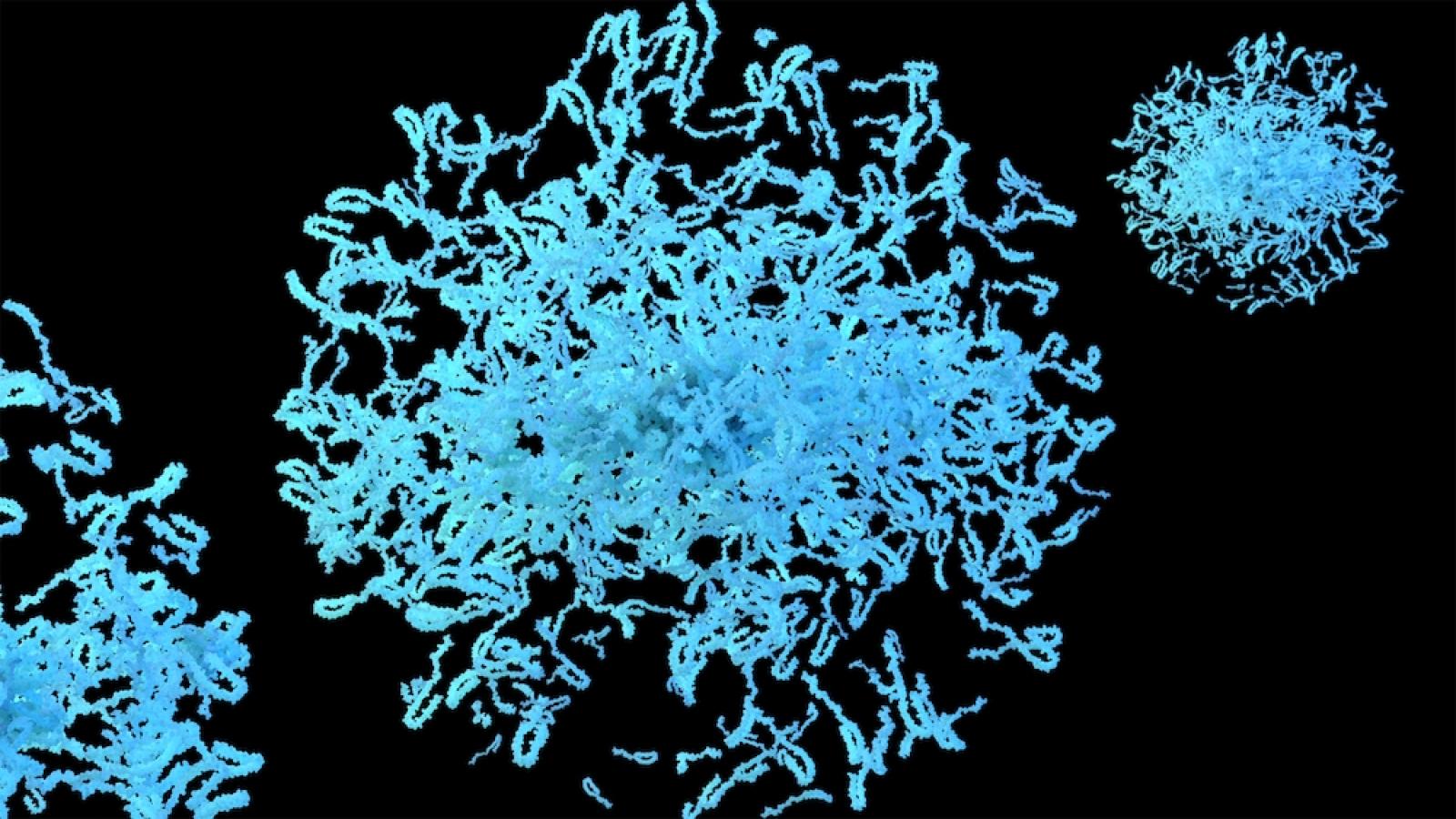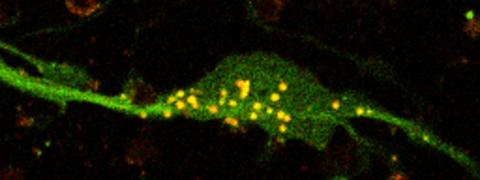Researchers led by Dr Sung Min Son and Prof David Rubinsztein (UK DRI at Cambridge) have identified a key enzyme driving forms of Parkinson’s, and have shown how blocking it restores normal function in animal and cell models – offering a promising new drug target for the condition.
In Parkinson’s, a protein known as alpha-synuclein builds up in clumps called Lewy bodies in nerve cells in the brain. These clumps of protein stop these cells from functioning normally, eventually leading the cells to die.
One way our bodies rid themselves of such toxic materials is via a process known as autophagy, where cells break down and recycle unwanted components. But autophagy does not work properly in Parkinson’s, meaning cells are unable to get rid of the toxic alpha-synuclein.
The new study uncovered a pathway involving an enzyme known as ACLY, which they found was hyperactivated in Parkinson’s. The team first examined human cells including brain cells, and ‘mini-brains’ called organoids, which contained abnormal alpha-synuclein. Using these cells and then zebrafish and mouse models, the scientists revealed that abnormal alpha-synuclein over-activates ACLY, which causes a cascade of events in nerve cells which disrupt autophagy, leading to the accumulation of alpha-synuclein and the kind of cellular stress and damage seen in Parkinson’s.
Our research shows that ACLY acts like a switch, triggering a series of changes inside brain cells, that we believe are central to Parkinson’s progression. A key finding is that when we blocked ACLY, we were able to reverse many of these changes, not just in human brain cells, but also in zebrafish and mouse models.
Group Leader
The study, funded by the UK DRI, Parkinson’s UK, Rosetrees and the John Black Charitable Foundation, and published in the journal Neuron, showed that blocking the function of ACLY restored normal autophagy and reduced levels of toxic alpha-synuclein in cells, mini-brains, zebrafish and mouse models of Parkinson’s. By using drugs to block the function of ACLY, researchers were able to reduce the toxicity of alpha-synuclein in brain cells and mini-brains.
In zebrafish and mice that were genetically altered to carry a mutation in the alpha-synuclein gene that causes Parkinson’s in humans, blocking ACLY similarly boosted autophagy, which led to increased removal of alpha-synuclein. This reduced the disease-associated effects of this protein in these animal models. These findings point to a potential disease-modifying strategy targeting a root cause of cell death in Parkinson’s.
There are several compounds that block, or inhibit, ACLY. One is hydroxycitrate, a well-known but controversial weight-loss supplement. Others have been evaluated as potential anti-cancer therapeutics. However, the challenge is that these compounds do not cross the blood-brain barrier. Therefore, the next step in this research is to develop an ACLY inhibitor which can pass into the brain from the blood.
Lead author Prof David Rubinsztein, Group Leader at the UK Dementia Research Institute at the University of Cambridge, said:
“Our research shows that ACLY acts like a switch, triggering a series of changes inside brain cells, that we believe are central to Parkinson’s progression. A key finding is that when we blocked ACLY, we were able to reverse many of these changes, not just in human brain cells, but also in zebrafish and mouse models.
This suggests that problem caused by alpha-synuclein in Parkinson’s aren’t just about the protein itself, but how it disrupts other processes within cells. Our research suggests that ACLY is a compelling drug target for Parkinson’s, laying the foundation for future therapies aimed at halting or reversing the course of the condition.”
Reference: Son SM, Siddiqi FH, Lopez A, Ansari R, Tyrkalska SD, Park SJ, Kunath T, Metzakopian E, Fleming A, Rubinsztein DC. Alpha-synuclein mutations mislocalize cytoplasmic p300 compromising autophagy, which is rescued by ACLY inhibition. Neuron. 2025 Apr 14:S0896-6273(25)00247-8. doi: 10.1016/j.neuron.2025.03.028.

